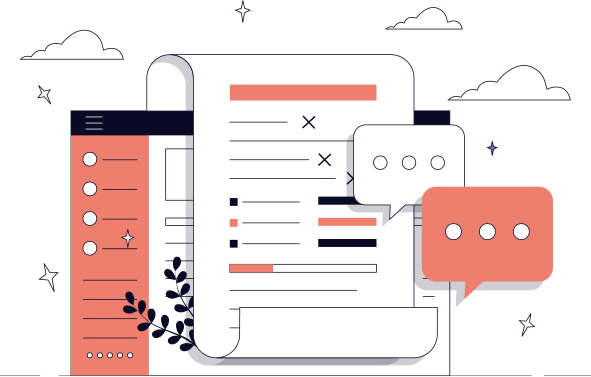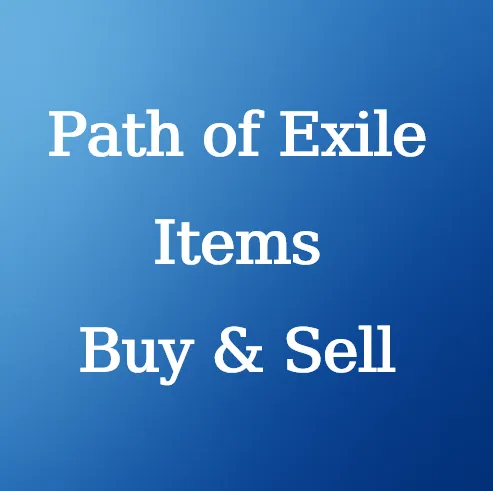Cart Empty
Continue ShoppingSmart filters, quick results.


Path of Exile items help players improve their characters and progress through the game more efficiently. On this page, you can buy PoE items for PC, PS4, and Xbox in one place. The selection includes common gear, rare items, and other in-game items used by Path of Exile players at different stages of the game.
Many players choose to buy Path of Exile items to save time and focus on gameplay instead of long farming sessions. Whether you are starting a new build or upgrading an existing character, having the right items can make a clear difference. This page is designed for players who want a simple and direct way to find PoE items across all supported platforms.
All items are listed with clear information so players know what they are purchasing. The platform options make it easy to choose items for PC, PS4, or Xbox without confusion. This helps ensure compatibility with your game version.
If you are looking for Path of Exile items for sale, this page provides a structured way to browse and select items based on your needs. It is suitable for both new and experienced players who want reliable access to PoE items on their preferred platform.
U4N provides a platform for players who want to sell Path of Exile items to other users. By becoming a U4N seller, you can list PoE items for PC, PS4, and Xbox and reach players who are actively looking to buy in-game items.
Selling PoE items can be a practical option for players who spend time farming gear, currency, or other items in Path of Exile. Instead of letting unused items sit in your inventory, you can offer them for sale through a structured marketplace. U4N allows sellers to manage listings, set prices, and handle orders in one place.
The seller process is designed to be clear and easy to follow. After registering, sellers can submit items and choose the platform they support. This helps ensure that buyers receive items that match their game version. Clear item information also reduces confusion during trading.
U4N supports Path of Exile sellers at different experience levels, from occasional players to regular traders. If you are interested in selling PoE items online, becoming a U4N seller offers a straightforward way to connect with buyers across multiple platforms while keeping item trading organized and transparent.
In Path of Exile, unique items are divided into several item types. Each type serves a different purpose and fits into specific character builds. Below is a clear list of the main PoE unique item categories and what they include.
Unique jewellery items provide bonuses that often affect core character stats or mechanics.
This category includes:
Jewellery is commonly used to improve damage, defense, or utility without taking up main gear slots.
Unique armour items help shape a character's defense and playstyle.
This category includes:
Many builds rely on specific unique armour pieces to function correctly.
Unique weapons define how a character deals damage.
This category includes:
Each weapon type supports different skills and combat styles.
Unique flasks provide special effects during combat.
This category includes:
Unique jewels modify passive skill trees or grant special effects.
Unique maps offer special encounters, layouts, or rewards not found in regular maps.
Unique items are a special item type in Path of Exile. Each unique item has a fixed name and specific modifiers that do not appear on normal, magic, or rare items. There are several ways to obtain them during gameplay.
Most unique items drop randomly from monsters, chests, and other loot sources. Any area can drop unique items, but the chance is low. Some unique items are more common, while others are very rare.
Certain bosses and optional game content have their own unique item drops. This includes league mechanics, special encounters, and endgame bosses. Running this content regularly increases overall exposure to unique drops.
An Orb of Chance can be used on a normal (white) item to upgrade it. There is a small chance the item becomes a unique of the same base type. This method is often used when targeting a specific base item.
Some unique items are obtained through vendor recipes. These require selling specific item combinations to an NPC. Recipe-based uniques do not drop randomly.
Unique items can be traded between players. Many players choose this method when they need a specific unique item rather than relying on drops.
Trading in Path of Exile allows players to exchange items and currency with each other. The game does not have an in-game auction house, so trading is done through the official trade website and direct player interaction.
Most trades start on the Path of Exile trade website. Players list items from their stash, and buyers can search using filters such as item type, modifiers, level, or price.
When you find an item you want:
Not all sellers reply immediately, especially if they are busy or offline.
If the seller agrees to trade:
To sell items, players usually use a premium stash tab set to public. Priced items appear on the trade site, allowing other players to contact you directly.
PoE items are used to improve a character's damage, defense, and utility. Items can affect skills, attributes, resistances, and other mechanics that shape how a build performs in combat and endgame content.
Yes. Items are platform-specific. PC, PlayStation, and Xbox each have separate game economies, so items cannot be traded across platforms. Always select the correct platform when buying or selling items.
Most PoE items can be traded between players. However, some items are account-bound or league-specific. Items must also belong to the same league and platform to be traded.
Before completing a trade, check the item's stats, item level, sockets, links, and modifiers. Make sure the item matches your build and that the currency amount in the trade window is correct.
Yes. Item prices can change during a league based on balance updates, popularity of builds, and overall supply and demand. Early-league prices are often different from late-league prices.
When a league ends, items are moved to Standard League. League-only mechanics and items may no longer be available once the league finishes.
Some items are beginner-friendly, while others require knowledge of game mechanics. New players should focus on items that improve basic stats before using more complex items.